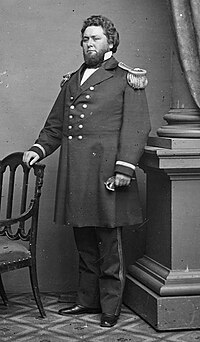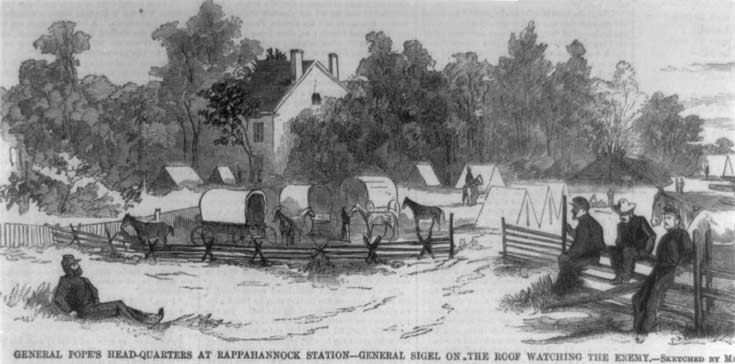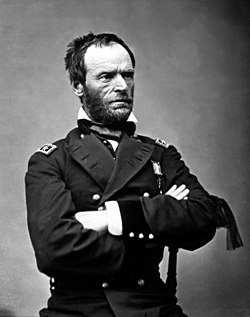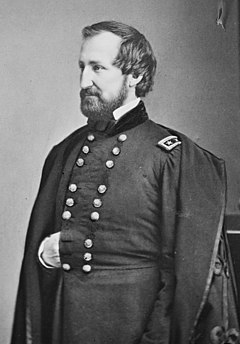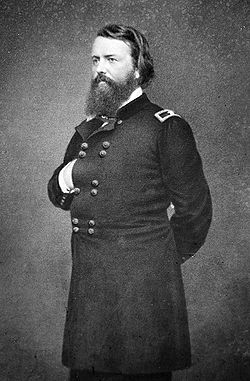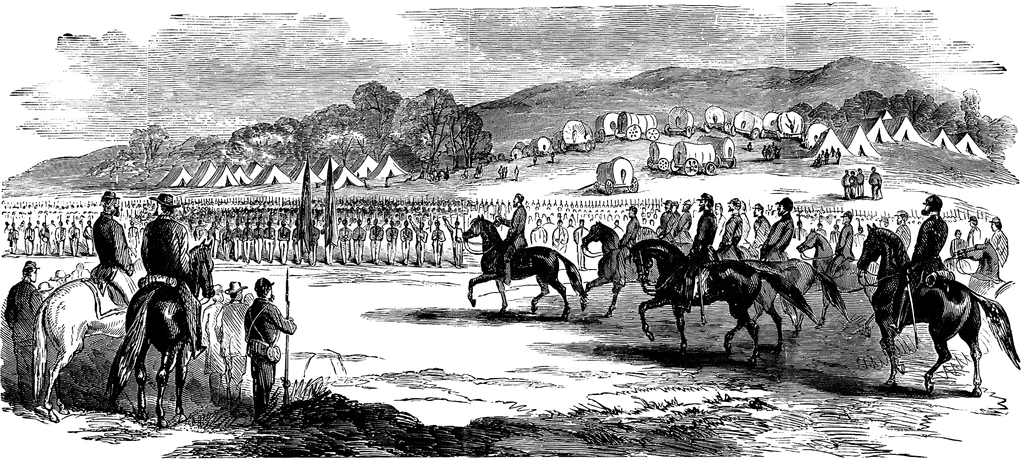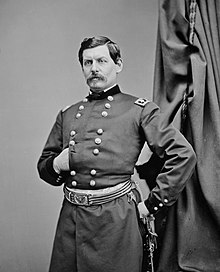 |
| General George B. McClellan |
HEADQUARTERS ARMY OF THE POTOMAC,
Camp near Harrison's Landing, Va., July 7, 1862
MR. PRESIDENT: You have been fully informed that the rebel army is in
our front with the purpose of overwhelming us by attacking our positions
or reducing us by blocking our river communications. I cannot but
regard our condition as critical, and I earnestly desire, in view of
possible contingencies, to lay before Your Excellency for your private
consideration my general views concerning the existing state of the
rebellion, although they do not strictly relate to the situation of this
army or strictly come within the scope of my official duties. These
views amount to convictions, and are deeply impressed upon my mind and
heart. Our cause must never be abandoned; it is the cause of free
institutions and self-government. The Constitution and the Union must be
preserved, whatever may be the cost in time, treasure, and blood. If
secession is successful, other dissolutions are clearly to be seen in
the future. Let neither military disaster, political faction, nor
foreign war shake your settled purpose to enforce the equal operation of
the laws of the United States upon the people of every State.
The time has come when the Government must determine upon a civil and
military policy covering the whole ground of our national trouble. The
responsibility of directing the whole course of national affairs in
regard to the rebellion, must now be assumed and exercised by you, or
our cause will be lost. The Constitution has given you power sufficient even
for the present terrible exigency.
This rebellion has assumed the character of a war. As such it should be
regarded, and it should be conducted upon the highest principles known
to Christian civilization. It should not be a war looking to the
subjugation of the people of any State
In any event, it should not be at all a war upon population, but against
armed forces and political organizations. Neither confiscation of
property, political executions of persons, territorial organization of
States, or forcible abolition of slavery should be contemplated for a
moment.
In prosecuting the war all private property and unarmed persons should
be strictly protected, subject only to the necessity of military
operations; all private property taken for military use should be paid
or receipted for; pillage and waste should be treated as high crimes,
all unnecessary trespass sternly prohibited, and offensive demeanor by
the military toward citizens promptly rebuked. Military arrests should
not be tolerated, except in places where active hostilities exist, and
oaths not required by enactments constitutionally made should be neither
demanded nor received. Military government should be confined to the
preservation of public order and the protection of political rights.
Military power should not be allowed to interfere with the relations of
servitude, either by supporting or impairing the authority of the
master, except for repressing disorder, as in other cases. Slaves,
contraband under the act of Congress, seeking military protection,
should receive it. The right of the Government to appropriate
permanently to its own service claims to slave labor should be asserted,
and the right of the owner to compensation therefore should be
recognized. This principle might be extended, upon grounds of military
necessity and security, to all the slaves of a particular State, thus
working manumission in such State; and in Missouri, perhaps in Western
Virginia also, and possibly even in Maryland, the expediency of such a
measure is only a question of time. A system of policy thus
constitutional, and pervaded by the influences of Christianity and
freedom, would receive the support of almost all truly loyal men, would
deeply impress the rebel masses and all foreign nations, and it might be
humbly hoped that it would commend itself to the favor of the Almighty.
Unless the principles governing the future conduct of our struggle shall
be made known and approved the effort to obtain requisite forces will
be almost hopeless. A declaration of radical views, especially upon
slavery, will rapidly disintegrate our present armies. The policy of the
Government must be supported by concentrations of military, power. The
national forces should not be dispersed in expeditions, posts of
occupation, and numerous armies, but should be mainly collected into
masses, and brought to bear upon the armies of the Confederate States.
Those armies thoroughly defeated, the political structure which they
support would soon cease to exist.
In carrying out any system of policy which you confidence, understands
your views, and who is competent to execute your orders by directing the
military forces of the nation to the accomplishment of the objects by
you proposed. I do not ask that place for myself. I am willing to serve
you in such position as you may assign me, and I will do so as
faithfully as ever subordinate served superior.
I may be on the brink of eternity, and as I hope forgiveness from my
Maker I have written this letter with sincerity toward you and from love
for my country.
Very respectfully, your obedient servant,
GEO. B. McCLELLAN,
Major-General, Commanding.
Official Records, Series I., Vol. 11, Part 1, Page 73.
While the sentiments contained in McClellan's letter were representative of the views of many in the army and perhaps most Democrats in the North, he chose a very peculiar time to develop such an extensive essay for the President's consideration. He had badly lead his army, suffered tremendous losses, was essentially penned up below Richmond at Harrison's Landing, and still had a chance, albeit much lessened to continue offensive operations. At minimum he had to be alert to possible attacks from a still dangerous foe. And yet at this time, seemingly emotionally broken only days before, McClellan chooses to lecture Lincoln on what the nature of the war should be. The letter anticipates, and opposes, what Lincoln would do after Antietam with the Emancipation Proclamation. As for fighting the war in accordance with traditional rules of war, he underestimates the essential fact the very reason for the war was an intensity of ill will between the two sections. The forces of vengence, represented by the Republicans, might have been held back by victory but would not stand idle when generals such as McClellan suffered defeat.






